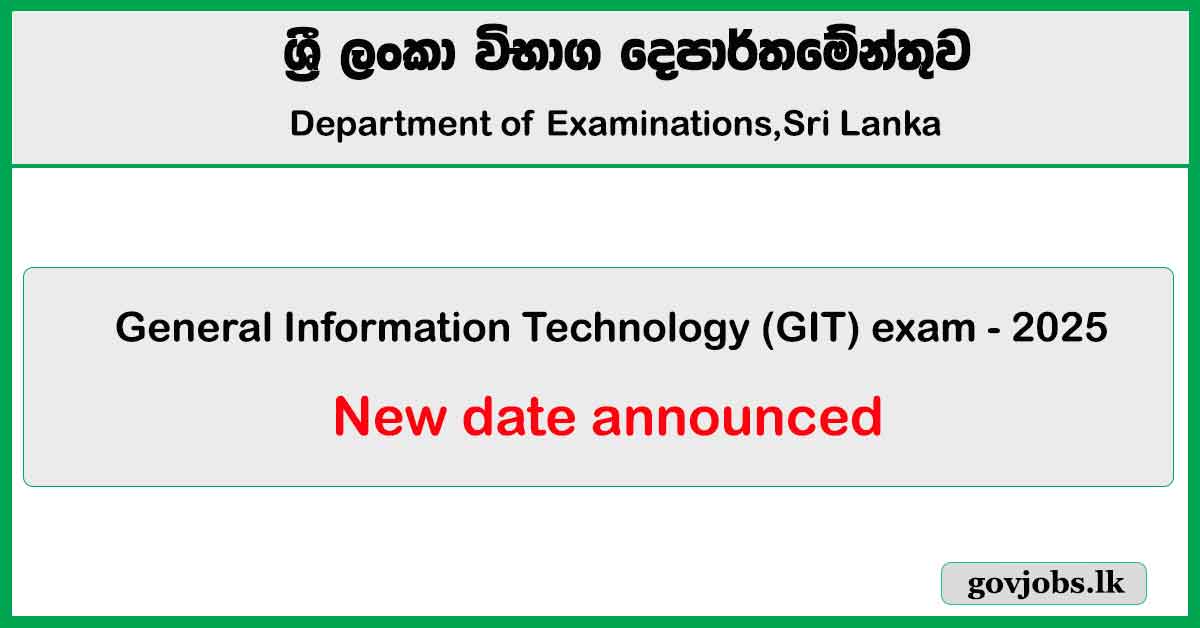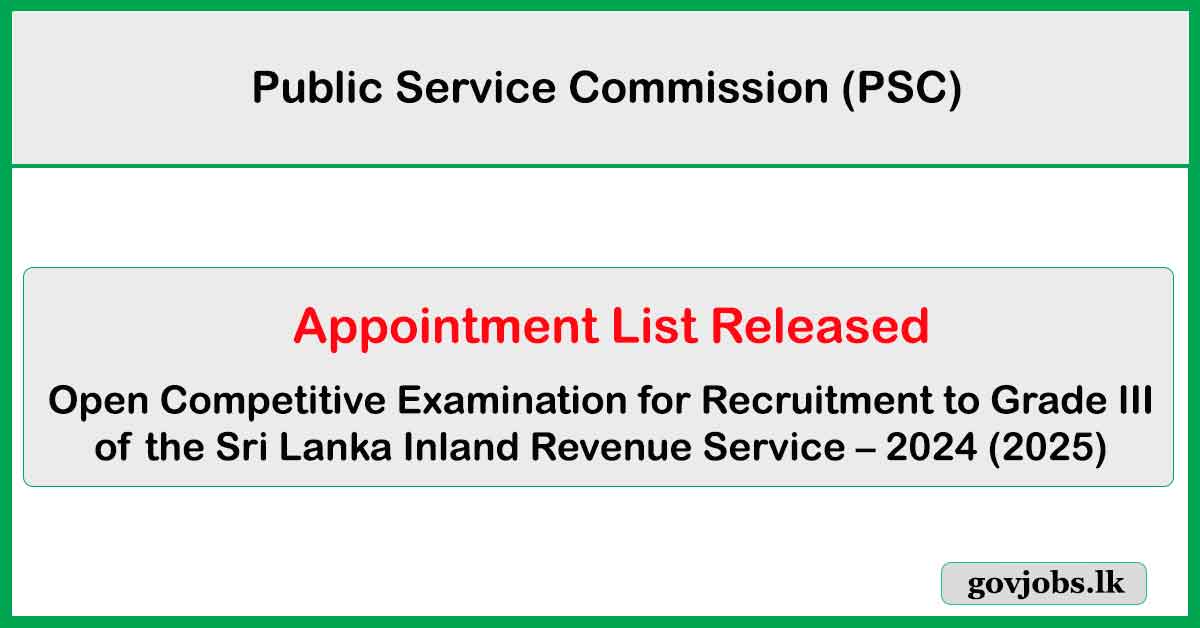
Inland Revenue Service Exam Results Released 2025 (Individual Marks)
Open Competitive Examination for Recruitment of Grade III of the …
Government Job Vacancies, Courses, Exam Results, Past Papers

Open Competitive Examination for Recruitment of Grade III of the …

Calling Applications for Vishwa Yathra Scholarships (Financial Grants) Awarded by the Employees’ Trust …

The GIT Exam 2025 has been rescheduled by the Department …

Department of Examinations – Ministry of Education, Higher Education and Vocational …

Education Ministry The First School Term schedule for 2026, as …

Public Service Commission (PSC) Open Competitive Examination for Recruitment to …

The government is providing Rs. 25,000 to clean flood-damaged dwellings …

Ministry of Education, Higher Education and Vocational Education Calling for …

Ministry of Education, Higher Education and Vocational Education Applications have …

The Ministry of Education has released the School Cut-off Marks …